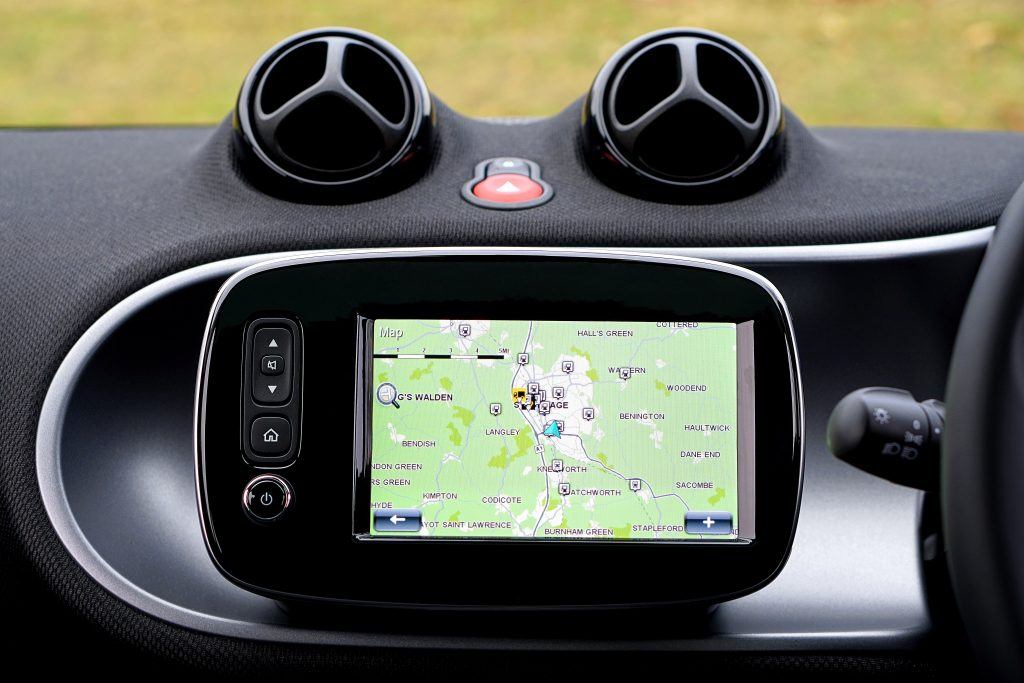
North Carolina Spying and the GPS: Where is your ex’s car headed?
By Carolyn J. Woodruff, JD, CPA, CVAThere are lots of times many Piedmont Triad and other North Carolinians wish that they could put a GPS tracking device on an ex’s car. Maybe you want to know who the “other woman” or “other man” is. Maybe you want to see what the father or mother of your child is doing. Maybe you want to see if your ex is going to strip clubs. Whatever your reason or mindset, North Carolina has recently enacted new legislation you need to know, and you need to know now!!!
The North Carolina legislature has enacted amendments to North Carolina General Statutes Section 14-196.3 on the crime of cyberstalking. The definition of Cyberstalking now includes electronic tracking devices (GPS). The electronic device may be the type that is hardwired into a car or attached to the car with a battery powering the GPS. It is now unlawful in North Carolina to attach a GPS advice to another person’s vehicle except in certain situations, which should be VERY CAREFULLY EVALUATED. After this new statute, you have to be very careful.
The North Carolina Business Court on October 5, 2015, issued a brilliant opinion regarding the GPS cyberstalking issue. HSG, LLC v. Edge-Works Manuf. Co, 205 NCBC 87. In HSG, one defendant claimed HSG “meddled with his personal vehicle by attaching a GPS tracking device to it.” The HSG well-written opinion essentially indicates that the attaching of the GPS was not the Tort of Invasion of Privacy, something divorce attorneys have long worried about regarding the use of GPS devices in divorce cases.
However, effective December 1, 2015, NCGS 14-196.3 clarifies the GPS issue for all of us. Use of a GPS outside the bounds of this amended statute is cyberstalking and rises to the level of a Class 2 misdemeanor for offenses committed after December 1, 2015.
There are several notable exceptions:
Exception one: A parent may track his/her minor child in a car driven by the minor.
Exception two: A parent can track a caretaker of his or her child if the minor child is under the caretaker’s sole care. This exception is the nanny exception. Note that the GPS device cannot be located on the person of the nanny. The nanny exception is somewhat problematic to me because the statute says the device can only be attached to the vehicle while the minor is in the nanny’s “sole care.” So you provide a car titled to you to the nanny to care for the child, and you want a GPS on the care. The nanny has Saturday night off. Do you have to install and uninstall the GPS for Saturday night? The best idea is to tell the nanny you are tracking the car and get her written permission in the nanny contract.
Exception three: This is the private investigator exception, and it is important. A licensed private investigator can place a GPS on a car with the consent of an owner of the vehicle. A typical divorce scenario might be: Husband owns and has sole title to an automobile. Provided the wife does not have a 50B protective order in place, the detective can place the GPS device on the husband’s car. If wife elects to drive the automobile titled to husband, then the detective can track the wife using the GPS.
Note, that under NO CIRCUMSTANCES should a detective or anyone else use a GPS to track the victim of domestic violence. The husband may own the car, and Wife may have a 50B Domestic Violence Protective Order granting her possession of the car owned by Husband. This car cannot be tracked by GPS, even if Husband thinks the Wife is having an affair and wants the evidence.
Exception four: Let’s say that Husband owns business vehicles in an entity. There is a “fleet vehicle” exception for tracking the motor vehicles driven for business purposes. It is unclear if wife drives a company car whether that car can be safely tracked.
Before you install a GPS in North Carolina, read the new provisions in the cyberstalking status and discuss with your family law attorney.
 North Carolina Divorce Lawyers Blog
North Carolina Divorce Lawyers Blog

